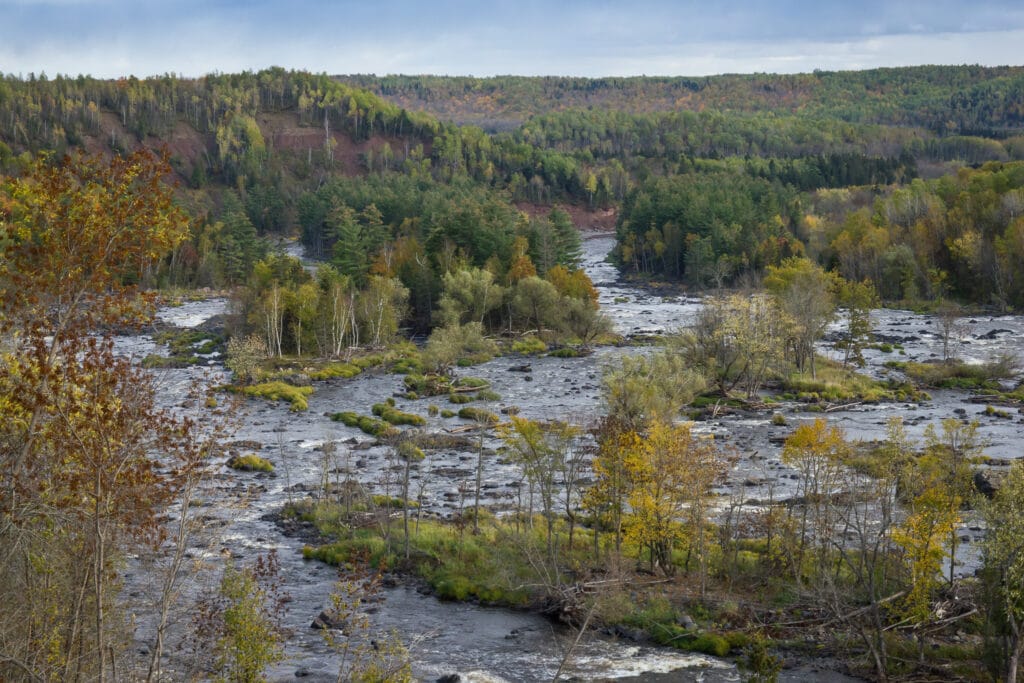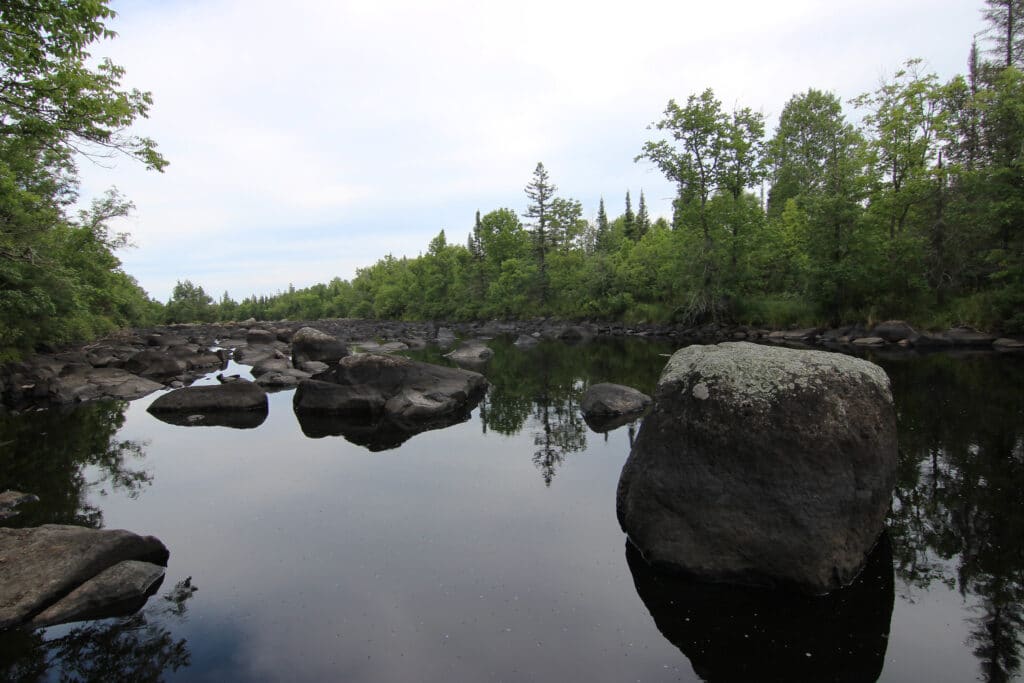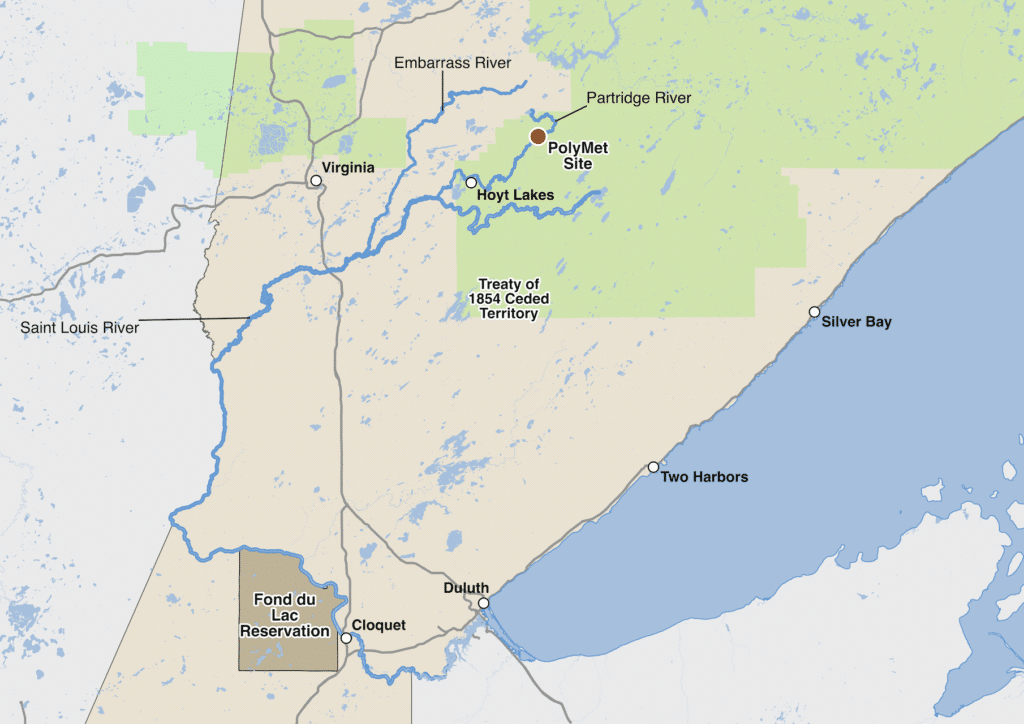
The U.S. Environmental Protection Agency has determined that pollution from the proposed PolyMet copper-nickel mine “may affect” downstream lakes and rivers under the jurisdiction of the Fond du Lac Band of Lake Superior Chippewa. PolyMet’s open pit mine and waste basins could contribute to aquatic issues like dangerous levels of mercury in fish, increased algae growth, and toxic chemical discharges. The company would dump mine waste on 900 acres of wetlands, and possibly affect groundwater levels. It could also release a variety of pollutants into the rivers.
The EPA made the decision last week after a lengthy legal process which began when the Army Corps of Engineers issued a water permit to PolyMet in 2018. At the time, the EPA did not issue a decision on whether or not the project could affect Fond du Lac’s waters, and those of Wisconsin in Lake Superior. The state of Wisconsin has not expressed concerns, but the band has repeatedly requested the EPA make such a determination.
After the permit was issued without an EPA decision, the band sued in federal court, and the EPA was ordered to make the determination. The EPA has now performed its review and ruled that the mine “may affect” the waters not under Minnesota’s control.

Mining milestone
Fond du Lac partner organization WaterLegacy called the decision historic.
“For the first time ever, on June 4, 2021, the U.S. EPA determined that pollution resulting from a federal permit ‘may affect’ a downstream Tribe,” WaterLegacy said.
“May affect” is the precise term which sets off an opportunity for the Fond du Lac Band to request a hearing on the permit. At the hearing, the band’s concerns about its waters would be heard, and the EPA would weigh in with its own analysis. The Clean Water Act requires the EPA to hear the additional information, and change the permit if necessary to ensure the project does not violate downstream water quality laws.
“If the imposition of such conditions cannot ensure compliance, the federal licensing or permitting agency shall not issue the license or permit,” the agency writes.
PolyMet’s mine would be located in the very upper headwaters of the St. Louis River, near the Embarrass and Partridge Rivers. Fond du Lac’s reservation is located on the St. Louis River 110 miles downstream near Cloquet. The band also has legal treaty rights to hunt and gather in perpetuity across northeastern Minnesota.

Continuing questions
Fond du Lac and PolyMet disagree about the potential for the mine to pollute tribal waters. PolyMet says all concerns were addressed during the environmental review phase. The mining company says there will be no measurable water impacts more than 50 miles downstream.
“The Band disagrees, pointing to concerns about cumulative loading to the St. Louis River that might affect their downstream waters, and the risk of a disproportionate impact to the Band’s population and treaty resources as a result of the project,” the EPA writes.
Fond du Lac also says computer simulations, or models, used to determine possible downstream affects were inadequate, and that it relies on the assumption the modelling was accurate.
The band also has its own water quality standards, some of which are more stringent than the state or federal government’s. It includes a strict standard for key mining pollutant sulfate, which can affect wild rice, or manoomin, and a mercury standard stronger than the state of Minnesota.
Fond du Lac has until August 3 to request a hearing from the EPA. In the meantime, PolyMet’s section 404 water quality permit is on hold, and the company cannot begin operations.
More information:
- Documents related to EPA’s PolyMet NorthMet 401(a)(2) Notification
- EPA alerts Wisconsin, Fond du Lac Band that PolyMet mine ‘may affect’ their waters – MPR News
- WaterLegacy: PolyMet Mine Overview

